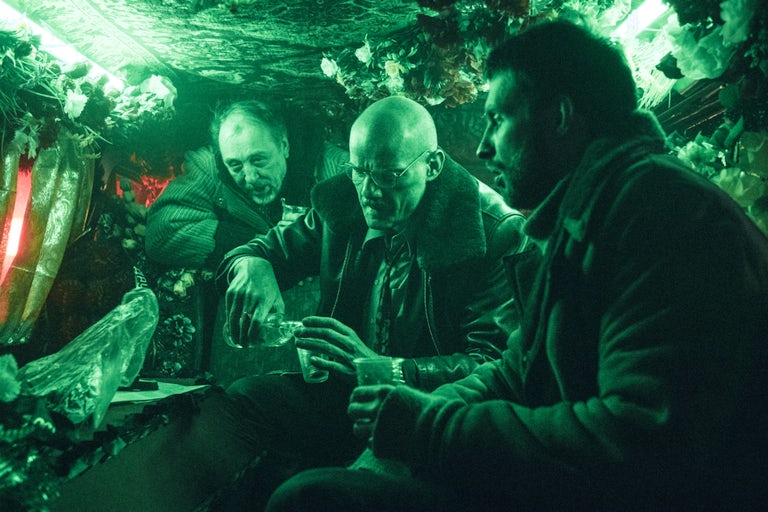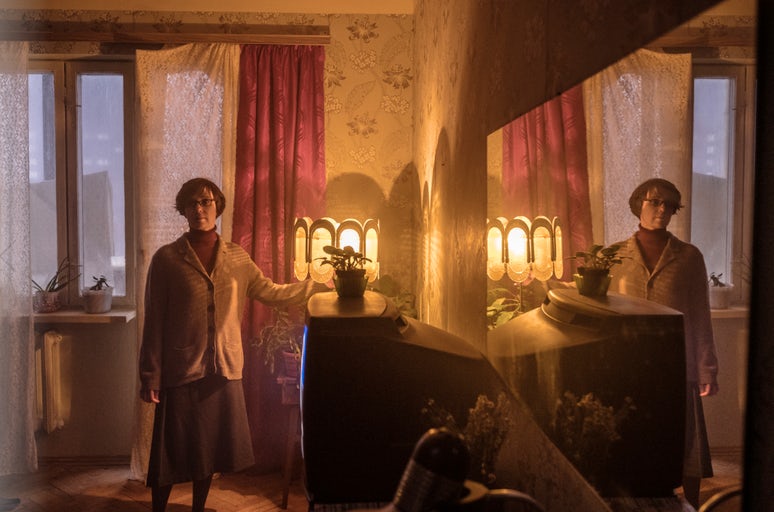It's hard to explain what it feels like to come out of Petrov's Fever, the new hallucinatory (and hallucinating) film by Kirill Sebrennikov, author of the fantastic Leto, which tells us about the rise and survival of rockers in the time of the USSR. Sebrennikov's new feature film was all the more anticipated because he was the victim of a dubious and judicious affair, which forced him to stay locked up at home for several years. Fortunately, Sebrennikov is now free (although forbidden to leave Russian territory). And it is therefore 4 years after his masterpiece (Leto) that he finds the way to the sets, and delivers us a feature film totally crazy and hallucinated. Don't look for logic in Petrov's Fever. There is none. This choral narrative has little meaning but turns out to be powerfully hypnotic and totally free. Sebrennikov frees himself from genres, summoning film noir, war film, social chronicle, action film and even superhero film.  The first part of the feature film is a masterpiece, multiplying visual hallucinations, sound, spectacular sequence shots. A long drunken trip where any notion of reality seems to disappear. Indeed, this first half follows during a night Petrov, comic book author, suffering from a carbine flu and who follows a certain Igor in a strange crossing in the city of Yekaterinburg. Petrov is beset by these childhood memories, he assists a friend, a failed writer, in his suicide. The notion of reality no longer exists, fiction overflows everywhere, nothing seems to make sense. However, all this part turns out to be virtuoso, a unique cinema experience, hypnotic, technically bluffing.
The first part of the feature film is a masterpiece, multiplying visual hallucinations, sound, spectacular sequence shots. A long drunken trip where any notion of reality seems to disappear. Indeed, this first half follows during a night Petrov, comic book author, suffering from a carbine flu and who follows a certain Igor in a strange crossing in the city of Yekaterinburg. Petrov is beset by these childhood memories, he assists a friend, a failed writer, in his suicide. The notion of reality no longer exists, fiction overflows everywhere, nothing seems to make sense. However, all this part turns out to be virtuoso, a unique cinema experience, hypnotic, technically bluffing.  But the reality of everyday life must return. Petrov is a father, as well as divorced. Little by little, Petrov's Fever forgets the different narrative tracks he has opened (starting with the strange relationship to violence possessed by the mother of his child, Petrova). The child gets sick. The reality of paternal responsibilities invades us. Little by little, Sebrennikov moves away from his almost experimental approach to return to something down-to-earth, more classic in its form and narrative. We are therefore excited to have experienced very great moments of cinema. However, we can only remain hungry as spectators of this experience. As if the filmmaker did not know how to conclude his film. Sebrennikov knows how to film, he seems to be in full measure of these capacities as a filmmaker. But in the end, he gives us a small episode of creative fever, an anecdotal episode in a lifetime. But a little fever that deserves to be experienced. https://www.youtube.com/watch?v=XZ8r_IZ21pk
But the reality of everyday life must return. Petrov is a father, as well as divorced. Little by little, Petrov's Fever forgets the different narrative tracks he has opened (starting with the strange relationship to violence possessed by the mother of his child, Petrova). The child gets sick. The reality of paternal responsibilities invades us. Little by little, Sebrennikov moves away from his almost experimental approach to return to something down-to-earth, more classic in its form and narrative. We are therefore excited to have experienced very great moments of cinema. However, we can only remain hungry as spectators of this experience. As if the filmmaker did not know how to conclude his film. Sebrennikov knows how to film, he seems to be in full measure of these capacities as a filmmaker. But in the end, he gives us a small episode of creative fever, an anecdotal episode in a lifetime. But a little fever that deserves to be experienced. https://www.youtube.com/watch?v=XZ8r_IZ21pk






































